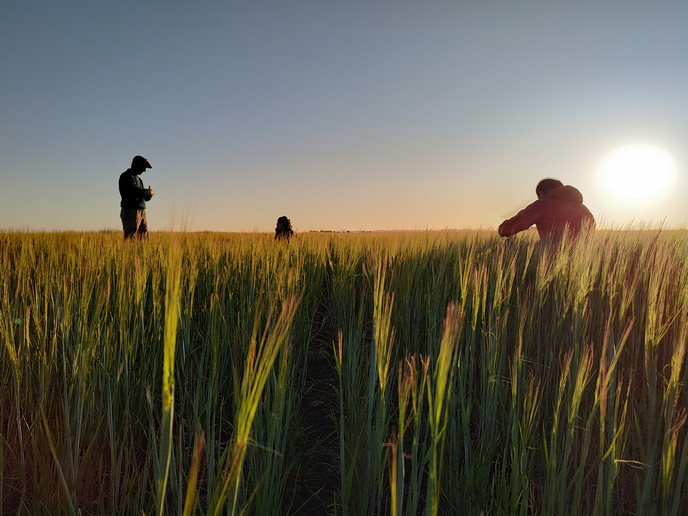How do invasive agricultural pests affect native ecosystems?
Many invasive herbivorous insects are major economic pests. A significant threat to agriculture, they inflict even greater damage than local species due to the absence of their native natural enemies. They can be accidentally introduced into non-native ecosystems by humans or extend their geographical range towards the poles due to global warming. Invasive herbivorous species can affect the chemical and behavioural ecology of local natural enemies with negative impacts on biological control effectiveness. Hence, there is an increasing need to understand how native food webs may be affected by the invasion of exotic species. With the support of the Marie Curie programme, the INVASIoN(opens in new window) project used the brown marmorated stink bug (BMSB) (Halyomorpha halys) as a model organism to understand the disruptive effects of invasive herbivores on local networks of chemical signals called infochemicals or semiochemicals. The initiative concentrated on egg parasitoids, which during their larval stage live within the eggs of stink bugs and are their main natural enemy. Increased population and range BMSB is a pest of Asian origin that has recently invaded both Europe and North America, causing serious economic losses to fruit, vegetables, field crops, and ornamental plants. “As its geographic range continues to expand, and its population numbers increase, the arrival of this pest has resulted in greatly increased application of broad-spectrum chemical insecticides in the diverse crops it attacks,” says project coordinator Ezio Peri. Researchers investigated the role of BMSB in disrupting infochemical networks in two local ‘tritrophic’ food chains from Europe and North America respectively, comprising the plant, the herbivore, and its natural predator. They focused on the impact on infochemical communication between plants, herbivores and natural enemies, and the influence on parasitoid foraging behaviour. Scientists studied patch time allocation (that is how local egg parasitoids optimise energy and time by confining their search to areas where the hosts are likely to be found), following alien herbivore invasion. Learning ability in egg parasitoids was also explored to determine how foraging behaviour is modified following the experience they have gained. Researchers also investigated the genetic structure of invasive alien herbivores across Europe and North America. Multiple benefits Results showed that BMSB can disrupt infochemical networks in both food chains. “In fact, egg parasitoids from both local food chains are not recruited by plant volatiles emitted as a consequence of being attacked by BMSB. From an applicative point of view this interference in semiochemical communication between plants and native egg parasitoids can limit parasitoid efficiency to control local pests,” Peri explains. The team also found that the level of genetic diversity in populations of BMSB that invaded European and North American countries is relatively high, suggesting that populations in Europe and North America were introduced from different geographic areas. In particular, two haplotypes found in specimens from Canada, Italy and USA, were detected for the first time. INVASIoN will have environmental, agricultural and socio-economic benefits by reducing pesticide inputs in integrated pest management. “By focusing on behavioural and chemical ecology of egg parasitoids and manipulation of infochemicals to improve efficiency, biological pest control is a promising strategy to minimise pesticide use in agriculture,” Peri concludes.







